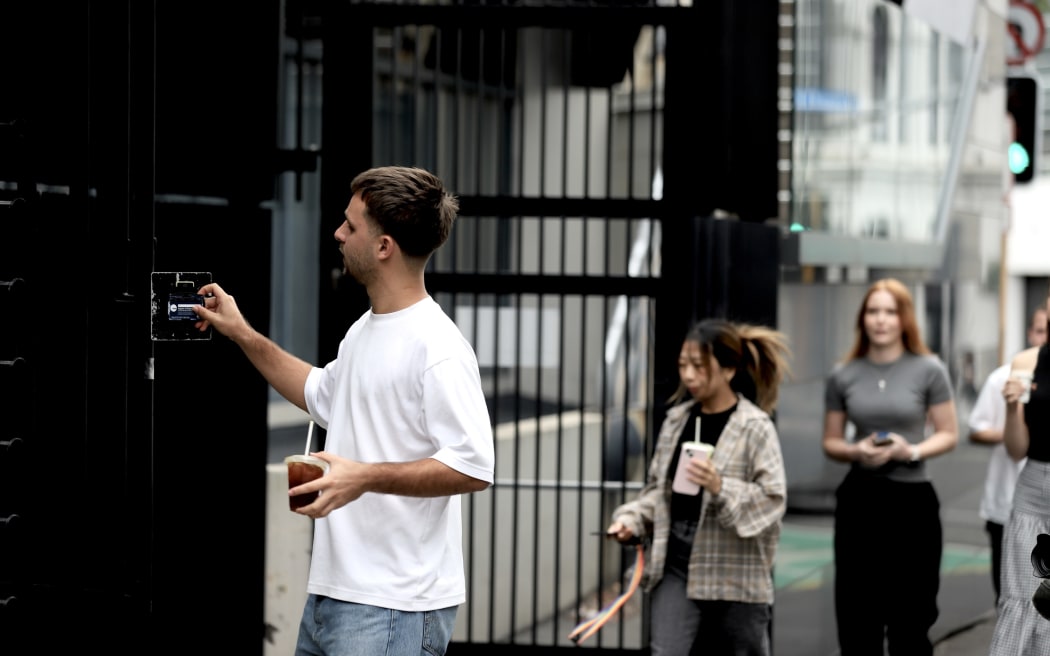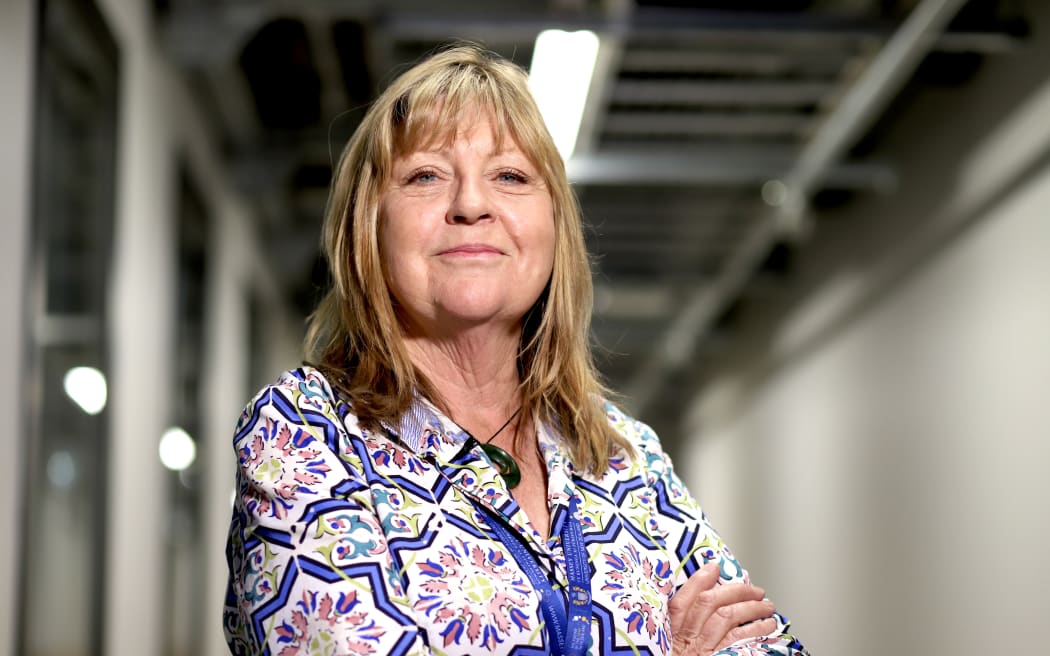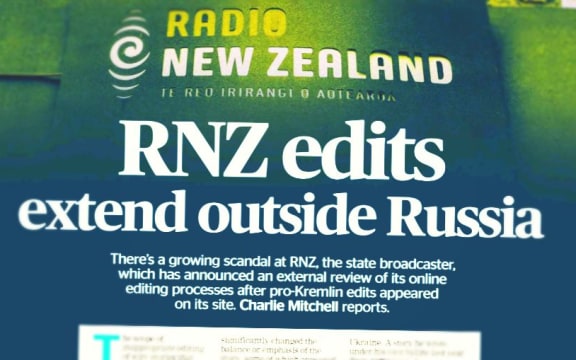RNZ MEDIAWATCH: By Colin Peacock, RNZ Mediawatch presenter
The future of Aotearoa New Zealand television news and current affairs is in the balance at the two biggest TV broadcasters — both desperate to cut costs as their revenue falls.
The government says it is now preparing policy to modernise the media, but they do not want to talk about what that might be — or when it might happen.
On Monday, TVNZ’s 1News was reporting — again — on the crisis of cuts to news and current affairs in its own newsroom.
The extent of discontent about the proposed cuts had been made clear to chief executive Jodi O’Donnell at an all-staff meeting that day.
The news of cuts rocked the state-owned broadcaster when they were announced four days earlier.
In fact, it rocked the entire media industry because only one week earlier the US-based owners of Newshub had announced a plan to close that completely by mid year.
No-one was completely shocked by either development given the financial strife the local industry is known to be in.
But it seems no-one had foreseen that within weeks only Television New Zealand and Whakaata Māori would be offering national news to hundreds of thousands of New Zealanders who still tune in at 6pm or later on demand.
Likewise the prospect of no TV current affairs shows (save for those on Whakaata Māori) and no consumer affairs watchdog programme Fair Go, three years shy of a half century as one of NZ most popular local TV shows of all time.
Yvonne Tahana’s report for 1News on Monday pointed out Fair Go staff were actually working on the next episode when that staff meeting was held on Monday.
All this raised the question — what is a “fair go” according to the government, given TVNZ is state-owned?
Media-shy media minister?
After the shock announcements last week and the week before, Minister of Media and Communications Melissa Lee seemed not keen to talk to the media about it.
The minister did give some brief comments to political reporters confronting her in the corridors in Parliament after the Newshub news broke. But a week went by before she spoke to RNZ’s Checkpoint about it — and revealed that in spite of a 24-hour heads-up from Newhub’s offshore owner — Warner Bros Discovery — Lee did not know they were planning to shut the whole thing.
By the time the media minister was on NewstalkZB’s Drive show just one hour later that same day, the news was out that TVNZ news staff had been told to “watch their inboxes” the next morning.
In spite of the ‘no surprises’ convention, the minister said she was out of the loop on that too.
After that, it was TV and radio silence again from the minister in the days that followed.
“National didn’t have a broadcasting policy. We’re still not sure what they’re looking at. She needs to basically scrub up on what she’s going to be saying on any given day and get her head around her own portfolio, because at the moment she’s not looking that great,” The New Zealand Herald’s political editor Claire Trevett told RNZ’s Morning Report at the end of the week.
By then the minister’s office had told Mediawatch she would speak with us on Thursday. Good news — at the time.
Lee has long been the National Party’s spokesperson on media and broadcasting and Mediawatch has been asking for a chat since last December.
Last Sunday, TVNZ’s Q+A show told viewers Lee had declined to be interviewed for three weeks running.
Frustration on social media
At Newshub — where staff have the threat of closure hanging over them — The AM Show host Lloyd Burr took to social media with his frustration.
“There’s a broadcasting industry crisis and the broadcasting minister is MIA. We’ve tried for 10 days to get her on the show to talk about the state of it, and she’s either refused or not responded. She doesn’t even have a press secretary. What a shambles . . . ”
A switch of acting press secretaries mid-crisis did seem to be a part of the problem.
But one was in place by last Monday, who got in touch in the morning to arrange Mediawatch’s interview later in the week.
But by 6pm that day, they had changed their minds, because “the minister will soon be taking a paper to cabinet on her plan for the media portfolio”.
“We feel it would better serve your listeners if the minister came on at a time when she could discuss in depth about the details of her plan for the future of media, as opposed to the limited information she will be able to provide this Thursday,” the statement said.
“When the cabinet process has been completed, the minister is able to say more. That time is not now.”
The minister’s office also pointed out Lee had done TV and broadcast interviews over the past week in which she had “essentially traversed as much ground as possible right now”.
What clues can we glean from those?
Hints of policy plans
Even though this government is breaking records for changes made under urgency, it seems nothing will happen in a hurry for the media.
“I have been working with my officials to understand and bring the concerns from the sector forward, to have a discussion with my officials to work with me to understand what the levers are that the government can pull to help the sector,” Lee told TVNZ Breakfast last Monday.
A slump in commercial revenue is a big part of broadcasters’ problems. TVNZ’s Anna Burns Francis asked the minister if the government might make TVNZ — or some of its channels — commercial-free.
“I think we are working through many options as to what could potentially help the sector rather than specifically TVNZ,” Lee replied.
One detail Lee did reveal was that the Broadcasting Act 1989 was in play — something the previous government also said was on its to do list but did not get around to between 2017 and 2023.
It is a pretty broad piece of legislation which sets out the broadcasting standards regime and complaints processes, electoral broadcasting and the remit of the government broadcasting funding agency NZ On Air.
But it is not obvious what reform of that Act could really do for news media sustainability.
Longstanding prohibitions
The minister also referred to longstanding prohibitions on TV advertising on Sunday mornings and two public holidays. Commercial broadcasters have long called for these to be dumped.
But a few more slots for whiteware and road safety ads is not going to save news and current affairs, especially in this economy.
That issue also came up in a 22-minute-long chat with The Platform, which the minister did have time for on Wednesday.
In it, host Sean Plunket urged the minister not to do much to ease the financial pain of the mainstream media, which he said were acting out of self-interest.
He was alarmed when Lee told him the playing field needed to be leveled by extending regulation applied to TV and radio to online streamers as well — possibly through Labour’s Fair Digital News Bargaining Bill.
“Are you seriously considering the government imposing tax on certain large companies and paying that money directly to your chosen media companies that are asking for it?” Plunket asked.
“I have actually said that I oppose the bill but what you have to do as the minister is listen to the sector. They might have some good ideas.”
When Plunket suggested Lee should let the market forces play out, Lee said that was not desirable.
Some of The Platform’s listeners were not keen on that, getting in touch to say they feared Lee would bail the media out because she had “gone woke”.
That made the minister laugh out loud.
“I’m so far from woke,” she assured Sean Plunket.
A free-to-air and free-to-all future?
At the moment, TVNZ is obliged to provide easily accessible services for free to New Zealanders.
TVNZ’s Breakfast show asked if that could change to allow TVNZ to charge for its most popular or premium stuff?
The response was confusing:
“Well ready accessibility would actually mean that it is free, right? Or it could be behind a paywall — but it could still be available because they have connectivity,” Lee replied.
“A paywall would imply that you have to pay for it — so that wouldn’t be accessible to all New Zealanders, would it?” TVNZ’s Anna Burns-Francis asked.
“For a majority, yes — but free to air is something I support.”
When Lee fronted up on The AM Show for 10 minutes she said she was unaware they had been chasing a chat with her for 10 days.
Host Melissa Chan-Green bridled when the minister referred to the long-term decline of linear real time TV broadcast as a reason for the cuts now being proposed.
“To think that Newshub is a linear TV business is to misunderstand what Newshub is, because we have a website, we have an app, we have streaming services, we’ve done radio, we’ve done podcasts — so how much more multimedia do you think businesses need to be to survive?
“I’m not just talking about that but there are elements of the Broadcasting Act which are not a fair playing field for everyone. For example, there are advertising restrictions on broadcasters where there are none on streamers,” she said.
Where will the public’s money go?
On both Breakfast and The AM Show, Lee repeated the point that the effectiveness of hundreds of millions of dollars of public money for broadcasting is at stake — and at risk if the broadcasters that carry the content are cut back to just a commercial core.
“The government actually puts in close to I think $300 million a year,” Lee said.
“Should that funding be extended to include the client of current affairs programs are getting cut?” TVNZ’s Anna Burns-Francis asked her.
“I have my own views as to what could be done but even NZ on Air operates at arm’s length from me as Minister of Media and Communications,” she replied.
It is only in recent years that NZ On Air has been in the business of allocating public money to news and journalism on a contestable basis.
When the system was set up in 35 years ago that was out of bounds for the organisation, because broadcasters becoming dependent on the public purse was thought to be something to avoid — because of the potential for political interference through either editorial meddling or turning off the tap.
That began to break down when TV broadcasters stopped funding programs about politics which did not pull a commercial crowd — and NZ started picking up the tab from a fund for so-called special interest shows which would not be made or screened in a wholly-commercial environment.
Online projects with a public interest purpose have also been funded by in recent years in addition to programmes for established broadcasters — as NZ on Air declared itself “platform agnostic”.
Public Interest Journalism Fund
In 2020, NZ on Air was given the job of handing out $55 million over three years right across the media from the Public Interest Journalism Fund.
That was done at arm’s length from government, but in opposition National aggressively opposed the fund set up by the previous Labour government.
Senior MPs — including Lee — claimed the money might make the media compliant — and even silent — on anything that might make the then-Labour government look bad.
It would be a big surprise if Lee’s policy plan for cabinet includes direct funding for the news and current affairs programmes which could vanish from our TV screens and on-demand apps within weeks.
This week, NZ on Air chief executive Cameron Harland responded to the crisis with a statement.
“We are in active discussions with the broadcasters and the wider sector to understand what the implications of their cost cutting might be.
“This is a complex and developing situation and whilst we acknowledge the uncertainty, we will be doing what we can to ensure our funding is utilised in the best possible ways to serve local audiences.“
They too are in a holding pattern waiting for the government to reveal its plans.
But as the minister herself said this week, the annual public funding for media was substantial — and getting bigger all the time as the revenues of commercial media companies shrivelled.
And whatever levers the minister and her officials are thinking of pulling, they need to do decisively — and soon.
This article is republished under a community partnership agreement with RNZ.
This post was originally published on Asia Pacific Report.





